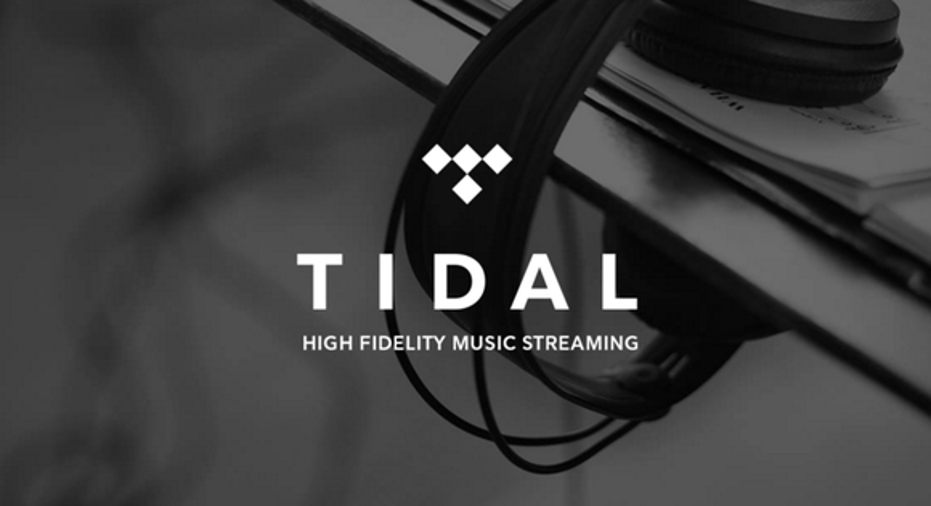Is This Apple Music's Next Big Competitor?

Source: Tidal.
Apple and Samsung are fierce competitors in the device market, with the latter's high-end Galaxy tablets and smartphones competing against Apple's iDevices. More recently, however, the growth rate of these devices has slowed, putting pressure on both companies. As a result, many investors are now wondering where future growth is going to come from.
Last quarter, Apple pointed toward services as a growth driver. Apple released a supplemental showing it increased installed-base-related purchases 24% on a year-on-year basis and that the company has over 1 billion installed devices. One of the newer services helping to drive year-on-year gains is Apple Music, the subscription-based streaming music product Apple offers for $9.99 per month for individual subscriptions.
Unlike Apple, Samsung has been mostly unable to profit from its user base after the initial sale, because its phones are powered by Alphabet's Android OS. It is Alphabet that profits through purchases from its Google Play app store and search revenue post-purchase. However, Samsung may be attempting to compete with both Apple and Alphabet by buying existing streaming-music company Tidal.
Jay-Z and Samsung have historySince its splashy launch nearly a year ago, Tidal's effects on the streaming-music industry have mostly been muted. Even with ownership chock-full of popular musicians, including Beyonce, Madonna, Alicia Keys, Jack White, and the most-visible owner, Jay-Z, the service has not been able to grow subscribers in a meaningful way. Right now the service boasts 1 million paying subscribers, which puts it far behind Apple's 11 million subscribers or Spotify's 20 million.
Image source: Spotify.
The New York Post reports that Samsung is rekindling talks to acquire the streaming-music service. The company has an existing relationship with Jay-Z, paying the artist $5 million for an exclusive release of his last CD. It appears the streaming music service needs a deeper-pocketed backer to continue. Recent reports are the service recently lost two more executives amid continued turnover in its C-suite. Even worse, the Post is reporting the service has had trouble paying its royalty bills to artists on time.
Either Samsung is not tremendously discouraged by these reports, or the company feels this is the easiest way to compete with Apple's successful new service.
Samsung may have to compete with Alphabet more than Apple
Source: Apple.
Interestingly enough, Samsung may have to compete against Alphabet to buy the service. The Post reports that Google, a division of Alphabet, is also interested in buying Tidal to bolster its digital offerings. More recently, the former mutually beneficial relationship these two companies portrayed has started to resemble merely a symbiotic one with Google working on its own high-end Nexus devices and Samsung developing its own operating system, Tizen, to control both hardware, software, and ecosystem like Apple.
Additionally, Samsung has taken multiple steps toward bringing exclusive software and features to the phone (Samsung Pay and TouchWiz, among others) in an attempt to differentiate and compete with Android's operating system. Samsung already has a device-specific music service as well: Milk Music is only available for newer Samsung models. This service operates on a freemium model with a $3.99 fee for an ad-free, unlimited-song skipping version. In this respect, Milk Music is similar to Pandora's business model.
This is probably not a game-changer in streaming musicIf Samsung buys out Tidal, will this be a game-changer in the streaming-music industry? Probably not. Tidal's value statement appears to be two-fold: the first was the service appeared more artist-friendly than Spotify and other streaming services, as indicated by its owners. The second was the service's customer-experience focus by exclusive releases and higher-quality audio.
It doesn't appear the market is motivated by these changes and Samsung's buyout would negate both propositions. Artists who no longer own the company would have much less incentive to exclusively release or prerelease records on Tidal as Rihanna and Kanye West did. Additionally, the ability for artists to have a hand shaping the future of the streaming-music industry would be lost if the company is sold. Samsung would receive 1 million subscribers, but how likely are they to stay once Tidal becomes simply another streaming-based service?
In the end, the subscription-based streaming music industry is dominated by Apple and Spotify. Look for that to continue going forward, regardless of whether Samsung buys Tidal.
The article Is This Apple Music's Next Big Competitor? originally appeared on Fool.com.
Suzanne Frey, an executive at Alphabet, is a member of The Motley Fool's board of directors. Jamal Carnette owns shares of Apple. The Motley Fool owns shares of and recommends Alphabet (A shares), Alphabet (C shares), Apple, and Pandora Media. Try any of our Foolish newsletter services free for 30 days. We Fools may not all hold the same opinions, but we all believe that considering a diverse range of insights makes us better investors. The Motley Fool has a disclosure policy.
Copyright 1995 - 2016 The Motley Fool, LLC. All rights reserved. The Motley Fool has a disclosure policy.



















